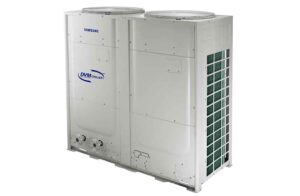JCI to acquire Australian firm Gordon Brothers
24th May 2023
AUSTRALIA: Johnson Controls is to acquire Gordon Brothers Industries (GBI), Australia’s long-established industrial refrigeration company.
According to Johnson Controls, the acquisition will enhance its industrial refrigeration service offerings in Australia by combining Gordon Brothers’ engineering expertise and Johnson Controls’ connected service technology.
“The acquisition of GBI is one that ensures that Australian businesses are served by the best technology,” said Anu Rathninde, president, Asia Pacific, Johnson Controls. “As a leader in industrial refrigeration solutions in Australia, GBI represents a strong strategic fit for Johnson Controls, as we look to create value for our local stakeholders and customers.”
Customers are promised an expanded product and services mix with more offerings and coverage for local services and installations, including a range of energy-efficient products using low and ultra-lowGWP refrigerants.
GBI’s team will be trained to design and engineer, select, and price Johnson Controls equipment for its industrial refrigeration and HVAC systems. Its technology team will also undergo specialised training in installation, commission, and service of Johnson Controls’ products.
Established in 1917, Gordon Brothers became a pioneer in the development of the refrigeration industry in Australia and in 1922 produced one of the first totally enclosed ammonia compressors mainly for small dairies and butcher shops. Following WWll, the company entered into a license agreements with US manufacturers Vilter, Dunham-Bush and Brunner. It became a subsidiary of Baker Perkins and in 2006 was purchased by the Hastie Group before being acquired by the current managers led by Ian Sleeth in 2012.
GBI has developed industrial refrigeration solutions for a wide range of industries including convenience foods, dairy, distribution centres, gas and chemical, beverage, brewery, cold storage, confectionery, meat processing, mine cooling, pharmaceutical, and seafood. It also specialises in low-charge ammonia refrigerant systems, incorporating both low and ultra-low GWP refrigerants.
Johnson Controls has been in Australia since 1965. It is said that the acquisition will considerably expand localised assembly capacity in food & beverage, mining, and new energy markets, adding extra capability to GBI’s existing offerings.
Going forward, the business will be comprised of four new divisions: York Process Systems, Gas Compression, Navy, and Sustainability.







